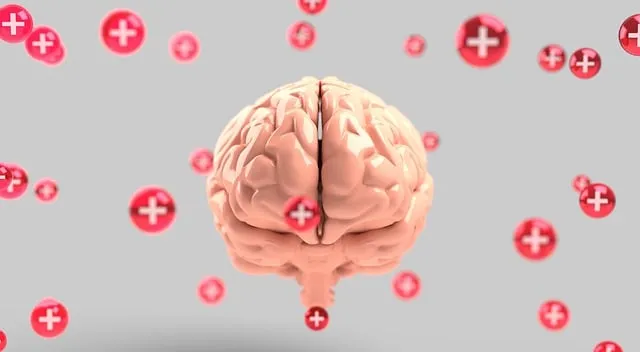Kaiser Permanente mental health Broomfield innovatively uses RFM (Reach, Frequency, Monetary Value) data to identify community members needing enhanced mental health support. By analyzing engagement with services, they target workshops and promote awareness through initiatives like the Mental Wellness Podcast Series. Their Community Outreach Program implements structured resilience-building exercises in five key steps, collaborating with experts and engaging the community. This holistic approach improves well-being, reduces stress, and prevents burnout, benefiting both patients and healthcare providers, as demonstrated by successful RFM integration at Kaiser Permanente mental health Broomfield.
“Discover how Kaiser Permanente Broomfield is pioneering mental health support through RFM (Resilience, Flexibility, and Mastery) exercises. This article explores the transformative power of RFM in enhancing well-being at a leading healthcare provider. We’ll guide you through a step-by-step implementation process, highlighting benefits and challenges encountered. Learn why integrating RFM into mental health care programs is crucial for fostering resilience among patients, with real-world insights from Kaiser Permanente’s experience.”
- Understanding RFM and Its Impact on Mental Health Support at Kaiser Permanente Broomfield
- Implementing Resilience-Building Exercises: A Step-by-Step Guide
- Benefits and Challenges of Integrating RFM into Mental Health Care Programs
Understanding RFM and Its Impact on Mental Health Support at Kaiser Permanente Broomfield

At Kaiser Permanente Broomfield, understanding RFM (Reach, Frequency, and Monetary Value) is key to enhancing mental health support. This data-driven approach helps identify members who might be in need of extra care, enabling targeted interventions. By analyzing how often and how much individuals engage with mental health services, healthcare providers can better allocate resources. For instance, a higher reach could indicate a growing need for anxiety relief workshops, while frequent engagement suggests the effectiveness of coping skills development programs.
This strategy aligns with Kaiser Permanente’s commitment to holistic mental wellness. The organization has launched various initiatives, including a Mental Wellness Podcast Series Production, to cater to diverse needs. By leveraging RFM, they ensure that efforts like these podcasts reach those who can benefit most, fostering open conversations and promoting mental health awareness among the community.
Implementing Resilience-Building Exercises: A Step-by-Step Guide

Implementing Resilience-Building Exercises involves a structured approach to enhance mental well-being and foster a sense of empowerment among individuals. Kaiser Permanente Broomfield, recognizing the importance of mental health, has pioneered initiatives like the Community Outreach Program Implementation, aiming to provide accessible Emotional Healing Processes for its community. Here’s a step-by-step guide to effective implementation:
1. Assess Needs and Goals: Begin by understanding the specific needs within your community or organization. Conduct surveys, focus groups, or interviews to gather insights on prevalent mental health challenges and desired support systems.
2. Curate Resilient Programs: Based on the assessment, design a range of resilience-building exercises tailored to different demographics and preferences. These could include Stress Management Workshops that teach practical coping mechanisms, mindfulness practices, or creative outlets for emotional expression.
3. Collaborate with Experts: Partnering with mental health professionals, such as those at Kaiser Permanente Broomfield, ensures programs are evidence-based and effective. Their expertise in navigating complex emotional landscapes can enrich your offerings.
4. Community Engagement: Actively involve the community in program design and delivery. Encourage feedback from participants to continuously improve initiatives and ensure they remain relevant and impactful.
5. Pilot and Iterate: Launch smaller-scale pilot programs, collect participant feedback, and make necessary adjustments before full-scale implementation. This iterative process ensures that the final offerings resonate deeply with those they aim to support.
Benefits and Challenges of Integrating RFM into Mental Health Care Programs

Integrating RFM (Resilience, Flexibility, and Mindfulness) into mental health care programs offers a multitude of benefits for both patients and healthcare providers. At Kaiser Permanente mental health Broomfield, for instance, RFM exercises have been shown to enhance coping mechanisms, reduce stress, and improve overall well-being. These practices encourage individuals to develop a robust self-care routine, fostering better mental health outcomes in the long term. Furthermore, RFM techniques can serve as effective burnout prevention strategies for healthcare providers, who often face high-stress environments. By promoting resilience, flexibility, and mindfulness, these programs help professionals maintain work-life balance and avoid emotional exhaustion.
However, implementing RFM into established mental healthcare practices comes with challenges. Incorporating new methodologies requires thoughtful planning and cultural sensitivity in mental healthcare practice to ensure acceptance among both staff and patients. Training and education are crucial to helping healthcare providers understand the nuances of RFM integration, especially when addressing diverse patient populations with varying cultural backgrounds and belief systems. Despite these hurdles, the potential for positive impact is significant, promising improved patient outcomes and a healthier, more sustainable work environment for mental health professionals at Kaiser Permanente and beyond.
Resilience-focused interventions, such as those employing the RFM (Recovery-Focused Methodology) framework, offer a promising approach to enhancing mental health support within healthcare systems like Kaiser Permanente Broomfield. By integrating resilience-building exercises into care programs, professionals can empower individuals to navigate challenges and promote long-term well-being. This article has provided an in-depth guide to understanding RFM, its benefits for mental health patients, and practical strategies for implementation. Embracing these methods could significantly contribute to improving mental healthcare outcomes for Kaiser Permanente’s Broomfield community and beyond.






